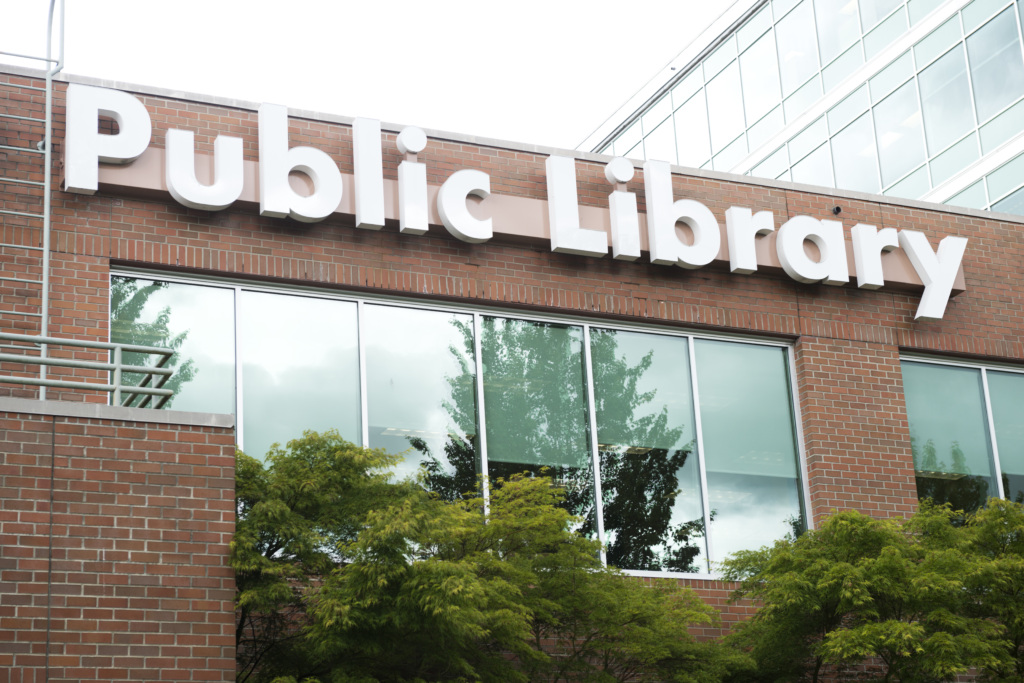A federal court in late July temporarily blocked a new Arkansas law that made it illegal for public libraries and bookstores to offer material that is “harmful” to minors.
U.S. District Judge Timothy L. Brooks put the law on hold while a legal challenge against it proceeds. The law, which was scheduled to take effect Aug. 1, was passed by the state legislature and signed by Gov. Sarah Huckabee Sanders (R). In addition to enabling criminal charges against booksellers, the law would have created a new process to challenge library materials and allowed anyone who claimed to have been “affected” by a book to demand its review.

Public library: Target of Christian Nationalist attacks (Getty Images)
The American Civil Liberties Union of Arkansas, the Central Arkansas Library System and others challenged the law in court. Holly Dickson, executive director of the ACLU of Arkansas, applauded the ruling, remarking, “The question we had to ask was, do Arkansans still legally have access to reading materials? Luckily, the judicial system has once again defended our highly valued liberties.”
The law is one among several provisions that have been passed in states that target public libraries and/or bookstores by attempting to remove certain materials or place them on restricted access. Opponents of these laws say they are vague and designed to have a chilling effect. Most of the material targeted deals with LGBTQ+ themes.
In his ruling, Brooks wrote the law “would permit, if not encourage, library committees and local governmental bodies to make censorship decisions based on content or viewpoint,” and thus violate the First Amendment.
Brooks also cited Ray Bradbury’s classic novel Fahrenheit 451, about a future society that burns books: “There is more than one way to burn a book. And the world is full of people running about with lit matches.” (Fayetteville Public Library v. Crawford County, Ark.)
In other news about censorship:
- An effort by conservative religious extremists to remove LGBTQ+-themed books from a public library in California backfired when word got out about what was going on.
The Rancho Peñasquitos branch of the San Diego Public Library was targeted by two residents who objected to a Pride display at the branch. They checked out nearly every book in the display and told library staff they would not return them until the library agreed to remove “inappropriate content” from the shelves permanently.
After the San Diego Union-Tribune ran a story about the matter, the library began receiving boxes containing donated copies of the books checked out by the two protesters. The library also received over $15,000 in donations, which the city has agreed to match to provide more LGBTQ+ programming and material, including expansion of the library system’s Drag Queen Story Hour.
The protesters who checked out the books in the display apparently copied a template from the group CatholicVote’s “Hide the Pride” campaign, which instructs supporters to check out or move books with LGBTQ+ themes and characters from public libraries.
- Educators in Florida are worried that a new state law curbing “sexual” material in classrooms will prevent them from teaching Shakespeare plays.
Officials in Hillsborough County recently announced that they will use only excerpts from plays instead of having students read them in their entirety. State education officials insist that Shakespeare plays can still be used in classrooms; but some teachers, noting that the new law gives broad powers to members of the community to challenge materials, say they fear losing their jobs if they use the plays.
- Officials in Warren County, Va., slashed funding for the county’s lone public library by 75% in response to complaints from a group of residents over the presence of LGBTQ+-themed books in the collection.
The group, Clean Up Samuels, demanded the removal of 134 books in the Samuels Public Library. The books are being reviewed, and the library announced a new system that gives parents more say in what books their children check out.
In early August, the library’s director, Michelle Ross, announced her resignation.
- Former President Barack Obama penned an open letter in July thanking librarians for the work they do and urging them to resist censorship efforts.
“Today, some of the books that shaped my life — and the lives of so many others — are being challenged by people who disagree with certain ideas or perspectives,” Obama wrote. “It’s no coincidence that these ‘banned books’ are often written by or feature people of color, indigenous people, and members of the LGBTQ+ community — though there have also been unfortunate instances in which books by conservative authors or books containing ‘triggering’ words or scenes have been targets for removal. Either way, the impulse seems to be to silence, rather than engage, rebut, learn from or seek to understand views that don’t fit our own.”
The letter continues, “I believe such an approach is profoundly misguided, and contrary to what has made this country great. As I’ve said before, not only is it important for young people from all walks of life to see themselves represented in the pages of books, but it’s also important for all of us to engage with different ideas and points of view.


